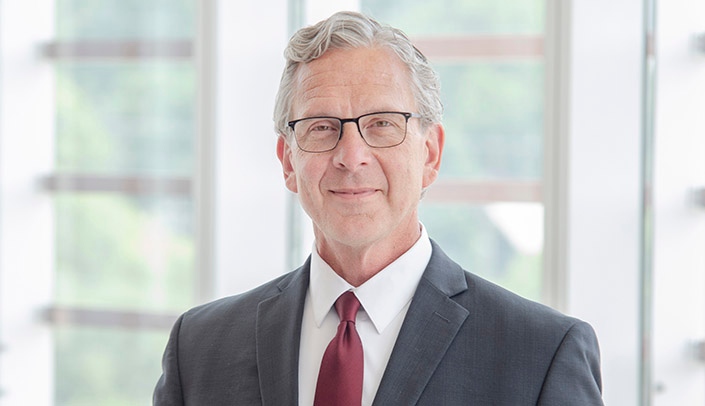Name: Ken Zoucha, MD
Medical school attended: UNMC
Location of your residency/fellowship training: UNMC, pediatrics
What residency/fellowship program at UNMC are you serving as program director for? Addiction medicine fellowship, with the UNMC Department of Family Medicine as our sponsoring residency program and the UNMC Department of Psychiatry providing the faculty.
Number of trainees: One per year currently; moving to two soon
How long have you been the program director? Since the fellowship was approved in 2019.
What made you chose to become the program director? I have so many great memories of my training at UNMC and feel that my training was second to none in our country. So when Howard Liu, MD, called and asked me to move from working as the medical director of youth secure-care facilities in south central Nebraska, I was taken aback by the offer. Addiction touches everyone in one way or another. My own recovery journey showed me that there are not enough providers to care for people struggling with substance use disorders. I became the program director of the addiction medicine fellowship to be a small part of the solution to improve the care of patients with substance use disorders and to help break down stigma and barriers to treatment.
What challenges do you foresee in graduate medical education in the future? The challenges I see in the future of GME include ongoing funding of that education. However, there are always solutions, including gracious people who believe in the mission. Second, many of our future physicians are in a significant amount of debt. Decisions are made due to that debt and that influences what specialty they go into, and I believe keeps some physicians from moving on to fellowships such as ours. A final challenge is that graduate medical education will need to find ongoing solutions to be more inclusive, diverse and equitable.
What are the strengths of your training program? Our program has dedicated faculty passionate about treating substance use disorders and teaching other health care providers to do the same. The program has strong collaborations and relationships with many other departments and divisions both in and outside the university. Our didactics include training from experts in addiction from across the country and Canada. It is truly a multispecialty subspecialty that provides care to patients in all areas of medicine. Our program has a strong focus on psychotherapeutic interventions for patients with addiction and provides training in that area as well as in medical and psychiatric interventions. Finally, our program has strong relationships with supporters outside the university, including Nebraska’s Division of Behavioral Health within the Department of Health and Human Services and other generous community partners.
List some accomplishments that you are proud of: I am proud of the diverse faculty who make the fellowship work. Our division went from a small, two-provider outpatient clinic and intensive outpatient program to a robust outpatient clinic, thriving intensive outpatient program, an adolescent outpatient treatment program and an addiction psychiatry consult liaison service. We built connections that have led to clinical training in an opioid treatment program and at the Independence Center, a full continuum treatment program. With this help and collaboration, we were able to attain ACGME accreditation in a relatively short period of time. I also am proud of the educational opportunities that our faculty have brought to UNMC, in medical education and interprofessional education. (Also, I am proud to be a grandfather!)
Tell us three things about you that others may not know:
- I love rock and roll.
- I dabble with the bass guitar.
- I am a big fan of science fiction (yes, there is a difference between “Star Trek” and “Star Wars”).

Congratulations, Ken! You are an inspiration!